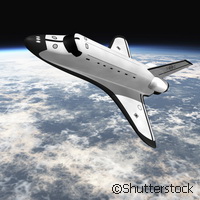What the scientists predict for 2013
As we start a new year, most of us will ponder about what is in store over the next 12 months. However, the thinkers and scientists from Imperial College London have gone a step further and predicted what we can expect to see in medicine, space and the environment. Indeed, the area of medicine expects to see major developments with the idea of re-growing damaged body parts with patients' own cells slowly becoming a reality, as scientists gain an understanding that stem cells are quite sensitive and need nurturing if they are to reach their potential and form complete organs. The development of artificial organs is the aim of a project receiving EU funding of EUR 5.6 million led by Emeritus Professor of Medicine Dame Julia Polak and Professor of Chemical Engineering Athanasios Mantalaris, who will be working with medical device company Novalung in order to develop a 'hybrid' artificial lung that incorporates human lung cells. Professor Dame Julia Polak says, 'The cells live in a micro-environment, you cannot just separate the cells from the environment. At the beginning, there seemed to be two separate fields: people studying stem cell biology and those developing novel biomaterials but now they are coming together. People are now aware they can use smart materials and cells and grow them in a bioreactor.' As a result of successful 'self-transplants' of relatively simple tissues like the trachea, this year could see major breakthroughs with more complex organs. Professor Dame Julia Polak adds, 'Each organ presents its own challenges. For instance the heart - could you regenerate scar tissue after a heart attack? We're particularly focused on lung regeneration, which is difficult because there are so many different cell types.' Space science is also expected to be very active in 2013, with a raft of unmanned robotic missions to be launched. For the first time, three spacecraft will work in unison to map the Earth's magnetic field, possibly testing whether a spacecraft could successfully deflect an asteroid on a collision course with Earth. Space Physics Professor Steven Schwartz says, 'Space exploration doesn't need a shuttle. I think, by and large, science will be done by unmanned activities. Getting a human being on the surface of Mars is incredibly difficult and getting them back alive all but impossible. One day we will do it. The human spirit is such that when we can do the one-way trip, which is easier, there'll be people queuing up to live out the rest of their lives on Mars.' Private organisations and universities are also expected to get involved in space missions, starting with the Virgin Galactic craft, which will make its maiden voyage this year. Richard Branson will accompany his family and customers (with tickets costing GBP 121 000) to the edge of space. However, it is thought that climate and weather patterns have the potential to have the greatest impact globally in 2013, with the El Niño climate pattern likely to reach its peak, meaning that the next 12 months could be particularly eventful for climate and weather. Professor Sir Brian Hoskins, Director of the Grantham Institute for Climate Change at Imperial College London, says, 'I'll be surprised if we don't get a record year soon. The multi-decadal trend of increasing global temperature is very clear; of the 10 hottest years on record, nine of them have occurred over the last 12 years. If you talk about 2°C or 4°C warming people say "oh we can adapt to that", but beyond a certain point the entire climate system will change and we're going to see massively different weather patterns.'For more information, please visit:Imperial College London:http://www3.imperial.ac.uk/European Commission - Climate Action:http://ec.europa.eu/dgs/clima/mission/index_en.htm
Countries
United Kingdom



